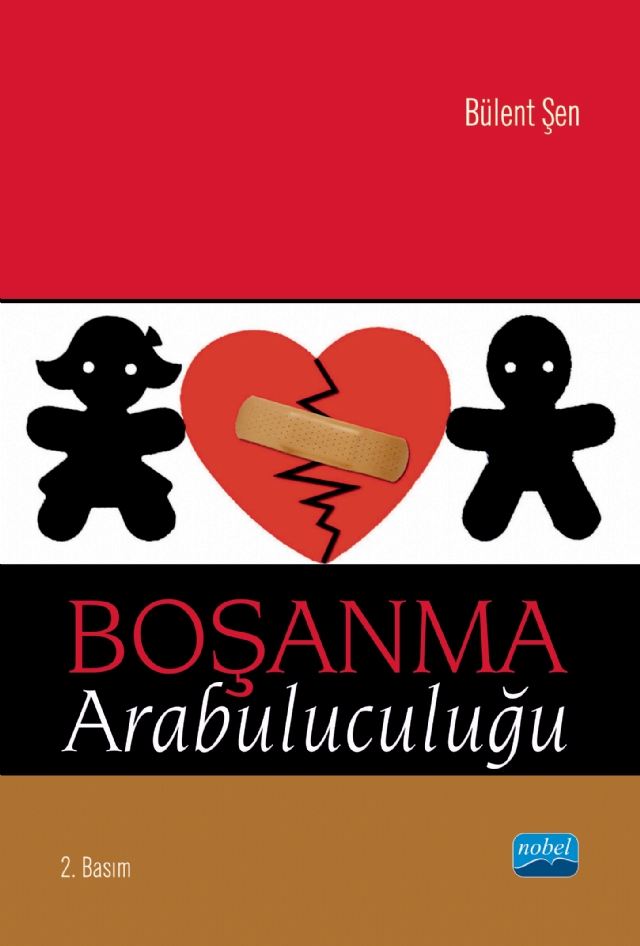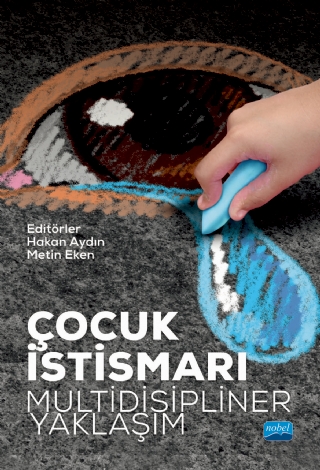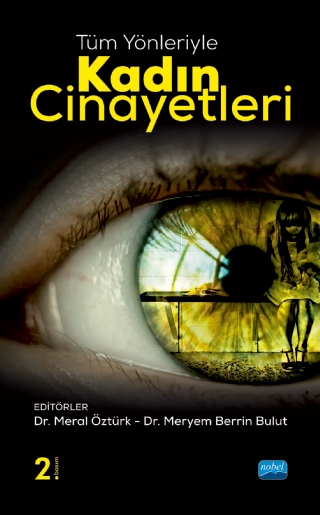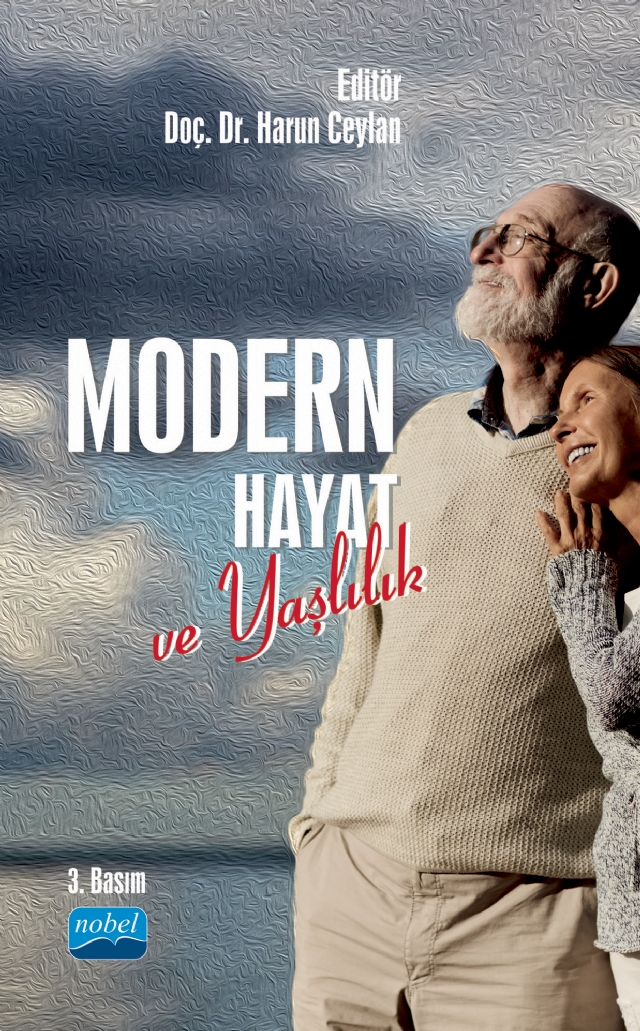Women and Family Sociology \ 1-1

Couples who love each other, dream of growing old together, and after having a child, cannot solve their problems after many unwanted experiences, and perhaps decide to divorce after receiving family counseling; While experiencing the negative processes of divorce, they do not harm each other and their children more in cases where the conditions are made more difficult in the court environment, divorce can be more economical, in a shorter time, with fairer conditions for both parties, both parties and their families can remain friends after the divorce, children can always be It is thought that completing the divorce process by making joint decisions under the supervision of an impartial third person, where they can see both parents regularly and receive support, will contribute positively to both couples and children and society.
In the book, both domestic and international literature and practices have been tried to be presented to the readers with an impartial eye, and they will work on divorce mediation. to academics; to students and practitioners of law, social work, psychology, psychological counseling, sociology, child development, preschool education, family and consumer sciences; to family counselors; to family court judges and experts; To the members of the 2nd Civil Chamber of the Supreme Court; to experts who will conduct legal studies on this subject; it has been tried to give basic information to the managers of the relevant institutions and organizations, to the readers who are curious about the issue of divorce mediation and to the couples who want to get divorced by agreement.
At the end of the book; Family Counselors who have received 450 hours of training in the guidelines issued by the Ministry of Family and Social Policies and have a Family Counseling certificate, and the desire of Lawyers who have received mediation training within the scope of the Mediation Law, to work together and to carry out interdisciplinary and holistic studies on Divorce Mediation, which can set an example for other countries, has been expressed.
In the book, both domestic and international literature and practices have been tried to be presented to the readers with an impartial eye, and they will work on divorce mediation. to academics; to students and practitioners of law, social work, psychology, psychological counseling, sociology, child development, preschool education, family and consumer sciences; to family counselors; to family court judges and experts; To the members of the 2nd Civil Chamber of the Supreme Court; to experts who will conduct legal studies on this subject; it has been tried to give basic information to the managers of the relevant institutions and organizations, to the readers who are curious about the issue of divorce mediation and to the couples who want to get divorced by agreement.
At the end of the book; Family Counselors who have received 450 hours of training in the guidelines issued by the Ministry of Family and Social Policies and have a Family Counseling certificate, and the desire of Lawyers who have received mediation training within the scope of the Mediation Law, to work together and to carry out interdisciplinary and holistic studies on Divorce Mediation, which can set an example for other countries, has been expressed.

Child abuse is a subject that needs to be studied meticulously in order to be handled with a multidisciplinary approach and to protect the best interests of children. Undoubtedly, the most important contribution to the solution efforts regarding the problem of child abuse will be the attempts to increase scientific and managerial knowledge about this field. The fact that these initiatives include a multidisciplinary approach is of strategic importance considering the extremely limited production in this regard and has the potential to strengthen the search for solutions. Depending on the stated purpose and importance, the ProChild Project has determined as one of its main outputs the production of an edited book, which deals with the problem of child abuse with a multidisciplinary approach. This book; It deals with the problem of child abuse with its knowledge of medicine, education, law and communication, focuses on the problem of representation through the news of child abuse published in internet newspapers, and opens the digital components of child abuse to discussion in detail.

While the human element that makes up the society affects geography and culture on the one hand, it is also affected by geography and culture. The human element of the social structure consisting of men and women differs from society to society according to the position of these two sexes in the structure. The position of women and men in society is one of the most important factors in determining the place of that society in other societies.
The meanings ascribed to women and men by society differentiate and differentiate the contributions of the sexes to social life, even by drawing sharp boundaries, sometimes visible and sometimes invisible barriers/prohibitions. This situation; It affects every aspect of the social structure, from family life regulated by gender to individual relations, from business life to educational status.
The cultural rituals, which constitute the main source of the differences in the social roles of these two sexes, in which the existence of one is not possible without the other, has sometimes brought the woman to the fore, sometimes the man, to the point of dominating the other and even depriving him of all kinds of rights. This deprivation and domination has been mostly in favor of men in the history of humanity, and women have been pushed into the secondary plan by being overshadowed by men in almost every era and society.
This book; “Women in Turks”, “Women in Anatolia”, “Women in Nomadic Culture”, “Bacıyan-ı Rum and Women Craftsmen in Anatolia”, Women in the West”, “II-IX. It covers the topics of "Women and Music in the Turks in the Centuries", "Violence Against Women", "Women with Statistics", "Education of Girls in the Late Ottoman Period and the Professional Life of Teacher Faika Ünlüer".
The meanings ascribed to women and men by society differentiate and differentiate the contributions of the sexes to social life, even by drawing sharp boundaries, sometimes visible and sometimes invisible barriers/prohibitions. This situation; It affects every aspect of the social structure, from family life regulated by gender to individual relations, from business life to educational status.
The cultural rituals, which constitute the main source of the differences in the social roles of these two sexes, in which the existence of one is not possible without the other, has sometimes brought the woman to the fore, sometimes the man, to the point of dominating the other and even depriving him of all kinds of rights. This deprivation and domination has been mostly in favor of men in the history of humanity, and women have been pushed into the secondary plan by being overshadowed by men in almost every era and society.
This book; “Women in Turks”, “Women in Anatolia”, “Women in Nomadic Culture”, “Bacıyan-ı Rum and Women Craftsmen in Anatolia”, Women in the West”, “II-IX. It covers the topics of "Women and Music in the Turks in the Centuries", "Violence Against Women", "Women with Statistics", "Education of Girls in the Late Ottoman Period and the Professional Life of Teacher Faika Ünlüer".

The book is a work that includes the scientific studies of academics from many different disciplines on femicide, and in this sense, it is the first study in its field in Turkey. In the book, femicide has been discussed from various aspects, and the subject has been tried to be examined from perspectives such as social work, sociology, psychology, forensic sciences and religious sciences. Of course, we are aware that it is difficult to explain a very important issue such as femicide in a book with all its aspects, but we have done this study hoping that this work will be a start in order to increase the number of studies in this direction.
The book is dedicated to all women in Turkey, whose names are unknown and who fell victim to male terror for various reasons, along with symbolic names such as Emine Yılmaz, Özgecan Aslan, Güldunya Ceremony and Ayşe Paşalı. We hope that this book will be useful to all people working in the field, especially decision makers, and thus contribute to the prevention of femicide.
The book is dedicated to all women in Turkey, whose names are unknown and who fell victim to male terror for various reasons, along with symbolic names such as Emine Yılmaz, Özgecan Aslan, Güldunya Ceremony and Ayşe Paşalı. We hope that this book will be useful to all people working in the field, especially decision makers, and thus contribute to the prevention of femicide.
